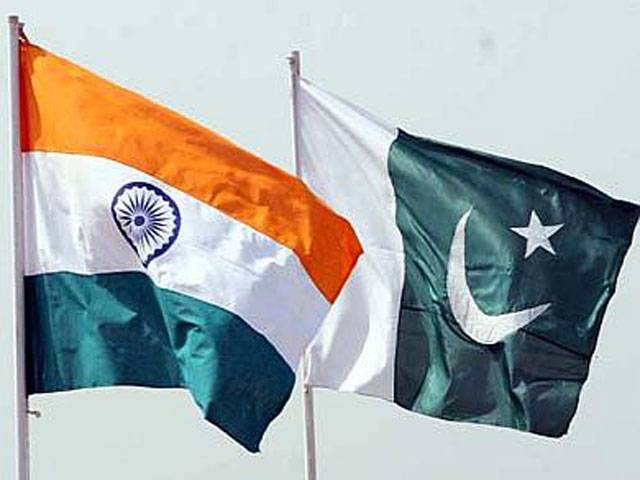NEW DELHI – Pakistan and India Wednesday announced several initiatives to accelerate cooperation in the oil and gas sector, as the two energy-starved nuclear-armed neighbours try to mend economic ties despite political differences.
Energy ministers from Pakistan and India said the two nations may jointly take part in developing a gas field in Turkmenistan. In addition, India has proposed to export petroleum products to its South Asian neighbour, said Oil Minister Jaipal Reddy, while addressing a joint briefing with his Pakistani counterpart, Asim Hussain.
Asim Hussain is in New Delhi for talks on a proposed 1,680-kilometre pipeline which will transport gas from Turkmenistan’s Yolotan-Osman field to India and Pakistan through Afghanistan. “We intend to have a joint strategy on the upstream sector where Turkmenistan is to develop its gas field,” Asim Hussain said. “We will have to wait for the response of the Turkmenistan government,” Reddy said. “Since everything is progressing smoothly, we are optimistic about it.”
An agreement to build a Turkmenistan-Afghanistan-Pakistan-India pipeline will help both India and Pakistan secure gas supplies and also benefit Turkmenistan, which has the world’s fourth-largest gas reserves including the Yolotan-Osman Gas field with estimated reserves of up to 13 trillion cubic meters. The $7.6 billion proposed pipeline could carry about 90 million standard cubic meters of gas per day. According to the plan, Afghanistan would get 14 MMSCMD of the gas, while India and Pakistan would equally share the balance.
Discussions on the pipeline have been continuing for about two decades and the project has US backing as it will provide millions of dollars to Afghanistan in the form of transit fee and also job opportunities. The pipeline will also reduce South Asia’s dependence on Iran, which has been seeking to supply gas to India and Pakistan through another proposed pipeline.
Asim Hussain said Pakistan is separately going ahead with a multi-billion-dollar gas pipeline project with Iran. “The gas supply purchase agreement has been signed with Iran. We are meeting all schedules on time.”
India, which was part of the project initially, isn’t actively pursuing it as the talks stalled on security and pricing issues. Reddy declined comment on India’s participation.
Reddy said India has offered to export gasoline, diesel, jet fuel and fuel oil besides sulphur, polyethylene and polypropylene to Pakistan, according to an Indian government statement. It said Pakistan will save freight costs as several Indian refineries are located close to the border between the countries. Indian refiners will study the feasibility of product pipelines to Pakistan provided they receive long-term guarantees for product purchases, Reddy added.
Asim said Pakistan has signed an agreement for purchase of gas from Tehran under the proposed Iran-Pakistan-India pipeline.
“There has been considerable progress in our talks,” said Reddy. Both sides agreed that the negotiations would be conducted in a transparent manner keeping in mind the overall economics of the TAPI pipeline. Since there is a need to expedite the signing of the Gas Sale Purchase Agreement (GSPA), both sides agreed to settle the transit fee issue at the earliest.
Pakistan agreed in principle that whatever fee formula is eventually settled between India and Afghanistan would also be acceptable to Pakistan subject to approval of their competent authority. “The issue of transit fees is being discussed with Afghanistan. A joint strategy is being evolved between India and Pakistan,” Hussain said. “Whatever deal we reach will apply to both countries,” Reddy added.
Reddy indicated that an earlier plan for a pipeline to carry gas from Iran to Pakistan and then India was now on the backburner. “We do what is more easily possible,” Reddy said, referring to the Turkmenistan project.
However, Asim Hussain said Pakistan has signed an agreement for purchase of gas from Tehran under the proposed Iran-Pakistan-India pipeline. He said Pakistan was not buying Iranian oil whereas Reddy said New Delhi was continuing to import oil from Iran and was not bound by new sanctions imposed by the European Union on the Islamic Republic earlier this week.
India also offered to export refined petroleum and petrochemical products by road, rail and by sea.
Both sides said that an India-Pakistan Joint Working Group (JWG) on Petroleum and Petrochemical Products has been constituted recently to go into the specific details of facilitating trade in this sector, including infrastructure upgradation and augmentation in respect of railways, customs facilitation, setting up of banking channels.
Both ministers also agreed to advise their respective officials to hold the first meeting of the JWG at the earliest.
Friday, April 26, 2024
Pakistan, India announce joint energy initiatives

12:26 AM | April 26, 2024
12:25 AM | April 26, 2024
12:24 AM | April 26, 2024
8:38 PM | April 25, 2024
Musk vs Australia
April 25, 2024
Reforming Rehab
April 25, 2024
Tax It Right
April 25, 2024
Academic Uprising
April 24, 2024
Cooperation Momentum
April 24, 2024
Ending animal suffering
April 25, 2024
AI governance
April 25, 2024
AI concerns
April 25, 2024
Population paradox
April 24, 2024
Unveiling differences
April 24, 2024
ePaper - Nawaiwaqt
Advertisement
Nawaiwaqt Group | Copyright © 2024





